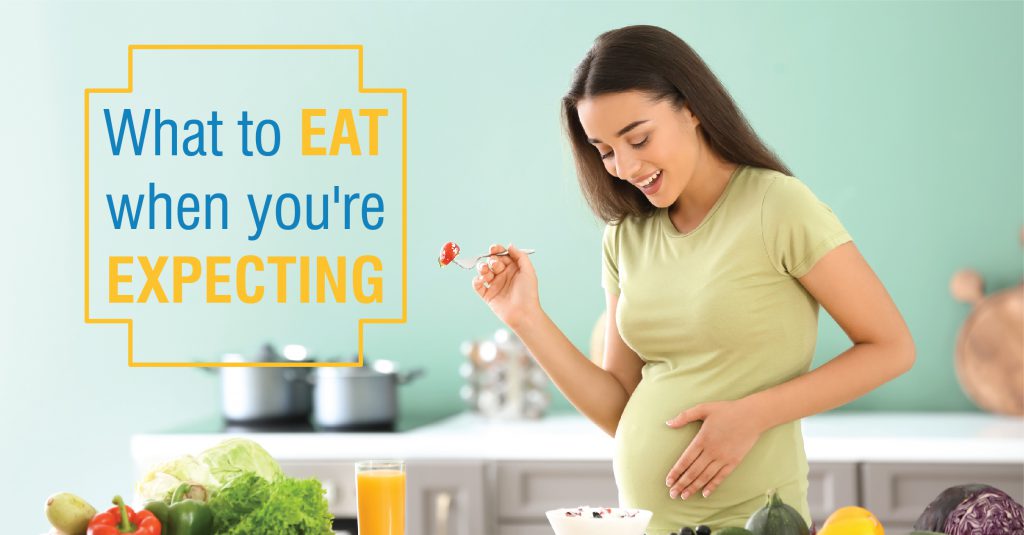It is very essential that your food contains different types of vitamins, minerals and other nutrients for you to stay fit and healthy. It is even more necessary in the case of pregnant women. During pregnancy, not only does the mother need different types of nutrients but you must remember the baby also receives its food from the mother. So, during pregnancy, you need to have more vitamin rich food than you did normally. At times, you have to take supplements if you don’t meet your bodily demands through food.
Different types of vitamins have varied roles in the growth of the baby. So, always consult your doctor before taking any type of vitamin supplements.

Pic Courtesy: https://www.google.co.in/search?q=Role+of+each+vitamin+while+Pregnancy+Period&biw=1242&bih=606&source=lnms&tbm=isch&sa=X&ved=0ahUKEwjFrMCttZfKAhWOVo4KHVhPAM8Q_AUIBigB#imgrc=t7xdwCzCIezmUM%3A

Pic Courtesy: https://www.google.co.in/search?q=Role+of+each+vitamin+while+Pregnancy+Period&biw=1242&bih=606&source=lnms&tbm=isch&sa=X&ved=0ahUKEwjFrMCttZfKAhWOVo4KHVhPAM8Q_AUIBigB#imgrc=ZGjCIHFclx1BCM%3A
Vitamin A
Vitamin A is one of the main requirements for foetal development, proper functioning of the immune system and visual health. Deficiency of vitamin A can cause night blindness etc. During pregnancy, it is advisable not to consume vitamin A supplements like retinol which is a compound of vitamin A as too much of it can harm the baby. Take your doctor’s advice before taking supplements of vitamin A. Some of the best dietary sources of vitamin A are:
- Vegetables like carrots, potatoes, pumpkin, broccoli etc
- Milk
- Eggs
- Liver
Vitamin D
You need vitamin D to keep your bones and teeth healthy. But during pregnancy, the baby also needs vitamin D during its first phase of development. Vitamin D helps your child’s teeth and bones grow. It also helps in regulating the immune system, nerves and muscles of the body. As we all know, the best source of vitamin D is sunlight, but too much of sunlight can lead to skin ageing etc. So, it is better to have vitamin D rich food and vitamin supplements during pregnancy.
Deficiency of vitamin D can soften the bones of your child and make it suffer from diseases like rickets. Some of the best sources of vitamin D are:
Vitamin C
Vitamin C is one of the essential vitamins during pregnancy. Vitamin C helps to form collagen in the blood vessels and during pregnancy the requirement of blood volume increases. So, a pregnant woman needs more vitamin C for the growth of the unborn baby.
During pregnancy, the average requirement of vitamin C is around 40 mg/day. But in some cases, the necessity is around 60 mg/day or more. Some best dietary sources of vitamin C are:
- Vegetables like green bean, potato, broccoli, papaya, tomato, bell pepper etc
- Citrus fruits
- Strawberries
Folic Acid
Folic acid helps in the growth of the cells and prevents neural tube defects. During pregnancy, a woman needs around 600 mcg of folic acid. Some dietary sources of folic acid are:
- Green leafy vegetables
- Vegetables like spinach, beans, broccoli and beet
- Fruits like strawberries and oranges
- Fortified cereals and pastas
Vitamin E
Vitamin E helps to form red blood cells and muscles. During pregnancy, you need to have vitamin E either through dietary source or through supplements. Some of the excellent dietary sources of vitamin E are:
- Fortified cereals
- Vegetable oils
- Spinach
- Nuts
Vitamin B1 or Thiamin
Vitamin B1 or Thiamin helps in raising the energy level and regulates the nervous system, as well. It also helps in maintaining appetite and growth. Deficiency of vitamin B1 can cause diseases like beriberi. So, it is advisable to have around 1.4 mg of vitamin B1 per day when you are pregnant.
You can find good source of vitamin B1 in the following:
- Fortified cereals
- Wheat germ
- Whole grain
- Pasta
- Eggs
- Legumes
- Organ meat
Vitamin B2 or Riboflavin
For better energy, good eyesight and healthy skin, vitamin B2 or riboflavin is very essential. So, during pregnancy, your body should get around 1.4 mg of vitamin B2 daily. Some dietary sources of vitamin B2 are:
- Fortified cereals
- Dairy products
- Egg
- Fish
- Meat

Pic Courtesy: https://www.google.co.in/search?q=Role+of+each+vitamin+while+Pregnancy+Period&biw=1242&bih=606&source=lnms&tbm=isch&sa=X&ved=0ahUKEwjFrMCttZfKAhWOVo4KHVhPAM8Q_AUIBigB#imgrc=rKTD6a_0SteLbM%3A
Vitamin B3 or Niacin
Vitamin B3 or Niacin is essential for the normal functioning of the gastrointestinal tract and nervous system. It also promotes healthy skin. A pregnant woman needs 18 mg of vitamin B3 on a daily basis either through dietary source or supplements. Some sources of vitamin B3 are:
- Fortified cereals and bread
- High-protein food
- Peanuts
- Milk
- Fish
- Egg
Vitamin B6 or Pyridoxine
Vitamin B6 helps in forming red blood cells and getting rid of morning sickness during pregnancy. During pregnancy, a woman requires around 1.9 mg of vitamin B6 daily in any form. Some of the good dietary sources of vitamin B6 are:
- Vegetables like cabbage, spinach, bean, broccoli and peas
- Nuts like walnut and peanut
- Brown rice
- Wheat germ
- Oats
- Sunflower seeds
- Chicken
- Fish
- Egg
It is essential to have a healthy diet during pregnancy for the proper growth of the baby. So, consult your doctor from time to time and take supplements when prescribed.




